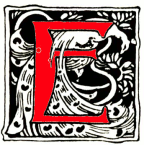
ver since the Treat of Chanak of 1806 between the Ottoman Europe and Great Britain, the Eastern Question had hovered ever more prominently on Europe's Mediterranean horizons. Britain's interests were more substantial in the East than France's, but we must not forget Russia's movements into the Orient (Samarkand and Bokhara were taken in 1868; the Transcaspian Railroad was being extended systematically), nor Germany's and Austria-Hungary's. France's North African interventions, however, were not the only components of its Islamic policy. In 1860, during the clashes beyween Maronites and Druzes in Lebanon (already predicted by Lamartine and Nerval), France supported the Christians, England the Druzes. For standing near the center of all European politics in the East was the question of minorities, whose "interests" the Powers, each in its own way, claimed to protect and represent. Jews, Greek and Russian Orthodox, Druzes, Circassians, Armenians, Kurds, the various small Christian sects: all these were studied, planned for, designed upon by European Powers improvising as well as constructing their Oriental policy. [191]
Last modified 23 October 2007